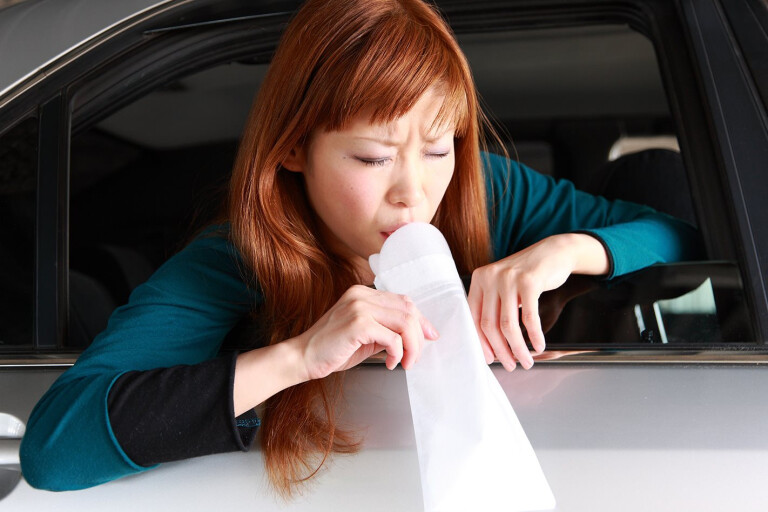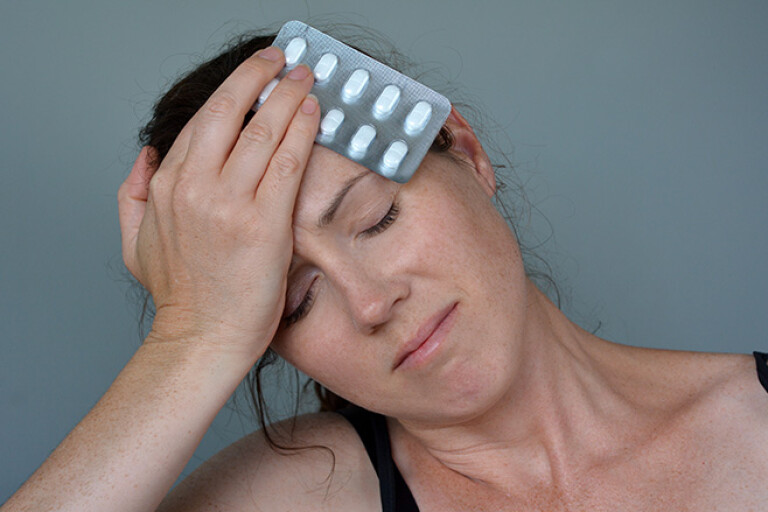
Whether you’re a regular to the car sick routine, or you manage to suppress the urge to spew by avoiding winding roads, the condition of wanting to heave up your breakfast and faint while four wheels are in motion is never a nice one. Car sickness is the pits.
Chances are if you suffer from car sickness you already know the bad news – it’s not just limited to a car. Bobbing over ocean waves, soaring through unpredictable winds or even just rolling through the motions of carnival rides are all likely to cause sudden onsets of this disorder. You’re probably also already aware that being a driver is less nauseating than being a passenger.
So what causes motion sickness? Unfortunately, there’s no hard and fast answer. In simplest terms, the cause is believed to be when the eyes see one thing but the part of the inner ear that controls balance (vestibular system) sends a different message to the brain. And that’s the reason drivers are often affected less, because they’re in control. At least, that’s the theory.

But there is some good news; there are ways to lessen the effects, and even avoid it all together. Here are some tips for next time you’re forced to sit in the passenger seat;
- Sit in the front seat. You can see the road ahead of you, you’re more aware of what’s coming so there’s less chance of surprising your brain.
- Stop as often as you can. Fresh air is the solution to so many problems, and motion sickness is no different. Not only does it give yourself a break from the winding roads, but it’ll also let your mind stabilise.
- Wrist bands. There’s an acupuncture point in your wrist that’s meant to alleviate nausea. While they aren’t scientifically backed, they’re a cheap, drug-free option and come highly recommended by our very own, motion-sickness suffering Lifestyle Ed, Anna.
- Food and drink intake is important. Anything too heavy or spicy is out. And that dream of sitting in Qantas Club or Business Class with champagne in hand? Forget it – alcohol is out of the question.
- Open a window or the sun roof, but don’t look up or out. Again, the fresh air will help, but the blurry trees and clouds flashing past you won’t. Sit in a way you can free the breeze without focusing on the broken scenery.
- Put down the books, phones and computer games. Your body is already sending conflicting signals, throw in a bit of Mario taking a right when your body is actually turning left, and you’ve given your body an eviction notice.
- Remember those dickie seats in the old Ford Falcon? They’re those extra seats in the boot that were rearward facing. Fun when you’re a kid, not so fun when you suffer from car sickness. Luckily, they’re not around anymore, but if you happen to get into an old Falcon, get in early with ‘shot gun’.
- Natural remedies. While there are some good medications you can take (see point 9), there are some natural remedies that are said to help. Peppermint and ginger are our top recommendations for all nauseous situations including car sickness.
- There are some really effective over-the-counter drugs you can take to help alleviate the effects of motion-sickness. Be wary that these can have side effects, like drowsiness, so don’t plan on driving unless you’re familiar with how your body reacts. Your doctor can also prescribe some medications.
- Most importantly – DON’T THINK ABOUT IT. You know those long drives when you’re busting for a wee and the last thing you want to hear or see is water? Same thing applies here. The more you hear about it, talk about it or think about it, the more likely you are to get sick. Focus on the fun, sing some songs (no head banging), breathe deep or go to sleep.
COMMENTS